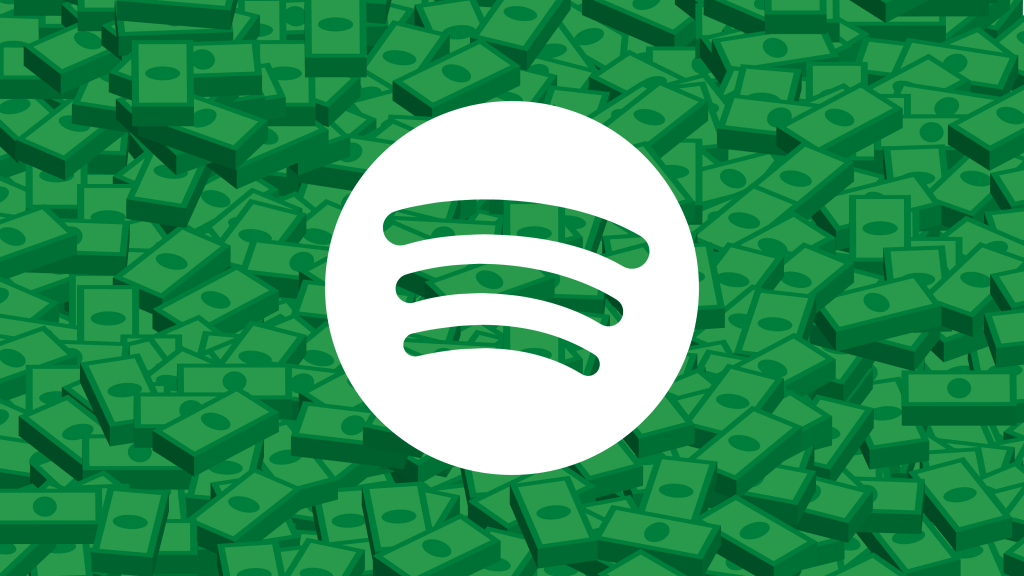Music streaming service Spotify is going public and it just unveiled its filing.
The documents state that it is targeting a $1 billion IPO, but this is just a placeholder. The company actually plans to go public without the standard fundraising event. In other words, Spotify isn’t selling its shares on the stock market. Instead, the event known as a “direct listing” will be a series of transactions from existing shareholders (like employees and investors) selling shares to stock market investors. Spotify’s filing even acknowledges that this unusual process is “risky.”
Its public debut is likely to happen in late March or early April, but it is unclear how much shares will cost when it lists under “SPOT” on the New York Stock Exchange. Spotify says that for 2018 its shares have traded on the private markets for between $90 and $132.50, valuing the company at $23.4 billion at the top of the range. But that these transactions “may have little or no relation to the opening public price of our ordinary shares on the NYSE.”
Spotify says it is present in 61 countries and its platform includes 159 million monthly active users and 71 million premium subscribers.
The filing shows that the Swedish company had 4.09 billion Euros in revenue last year (or close to $5 billion), compared to 2.95 billion Euros (about $3.6 billion) the year before. 2015 saw 1.94 billion Euros in revenue (about $2.37 billion).
Losses for last year were 1.2 billion Euros ($1.46 billion), which compares to 539 million Euros ($657 million) the year before.
Spotify previously raised about $2.7 billion in both debt and equity. Accel, Kleiner Perkins and Founders Fund are amongst the Valley VCs that invested. Goldman Sachs and Fidelity also own part of Spotify.
The filing shows that CEO and co-founder Daniel Ek has voting power that represents 23.8% of the company. However, some of this voting power is on behalf of shares owned by Tiger, TME Hong Kong and Image Frame. Ek technically owns closer to 9% of the business.
The prospectus has an additional note about Ek’s compensation, which says that he doesn’t receive a base salary, but is eligible for $1 million annual bonuses based on metrics like subscriber growth and active users.
Martin Lorentzon, who co-founded the business, owns 12.4%. Other large shareholders include Tencent, Tiger Global, Sony Music and Technology Crossover Ventures (TCV).
There are some key obstacles to the business, which Spotify acknowledges in its risk factors.
In it, Spotify explains how it will have to stay ahead of competitors and satisfy rights holders. The first risk mentioned is that “some of our competitors, including Apple, Amazon, and Google, have developed, and are continuing to develop, devices for which their music streaming service is preloaded.” Since Spotify currently doesn’t make its own phones or smart speakers, its competitors have an advantage in growing subscriber counts. This could ultimately encourage Spotify to build its own smart speaker or headphone hardware in the future.
Some are concerned that Spotify is beholden to music rights owners like record labels who could try to raise rates during periodic re-negotiations if they think the service becomes too profitable. There are also administrative agencies like the Copyright Royalty Board and trade groups like the American Society of Composers, Authors and Publishers who could seek to increase the rates Spotify has to pay. Control of rights is heavily concentrated within a few major labels and organizations. Universal Music Group, Sony Music Entertainment, Warner Music Group, and Merlin hold rights for music that accounted for 87% of Spotify’s streams in 2017. They could potentially wreck Spotify’s margins by demanding higher rates or deprive it of content in ways that would drive away listeners.
Spotify’s costs could continue to increase as it pays for content, creates its own, builds new features, and markets the service in the face of competition. Spotify’s licensing and royalty agreements are complex and could lead to litigation costs if it doesn’t hit milestones or guaranteed minimum payouts, or doesn’t properly license all the content it streams. Spotify has already been hit with numerous lawsuits for failing to find and pay all rights holders. Its competitors also hold larger patent portfolios that they could use to attack Spotify for intellectual property infringement.
Spotify faces competition from all sides and formats. There are traditional formats like CDs and Vinyl, digital files like MP3s and iTunes downloads, terrestrial and satellite radio, online radio like Pandora, and competing on-demand subscription services including Amazon Prime, Apple Music, Deezer, Google Play Music / YouTube, Joox, and SoundCloud. Since Google and Apple own the top mobile app stores, they could potentially bury Spotify and already charge it a tax that doesn’t get applied to their music services. Interestingly, Spotify lists Facebook as a potential competitor, given that it’s building a smart speaker and has struck deals with record labels, although it offers no music streaming service currently.
The company writes that “a key differentiating factor between Spotify and other music content providers is our ability to predict music that our Users will enjoy.” Features like Discover Weekly are what keep hardcore listeners on its service, and it will have to find a way to stay ahead of the recommendation engines of its competitors if it wants to win.
Check out all of TechCrunch’s stories about Spotify going public, and read our feature piece “Going public pits Spotify’s suggestions versus everyone.”


































Comment